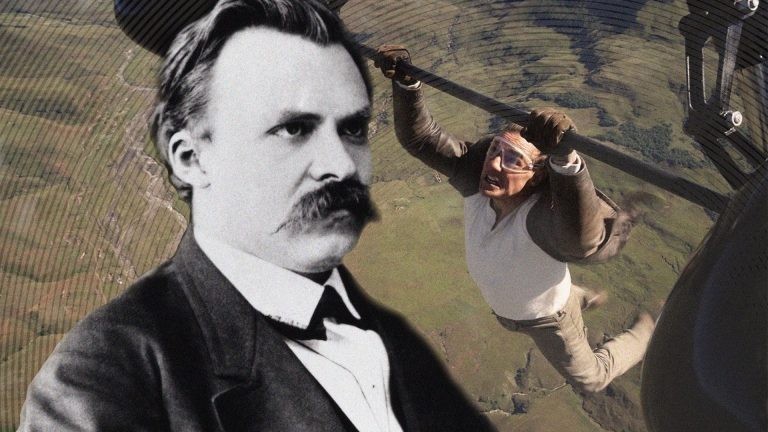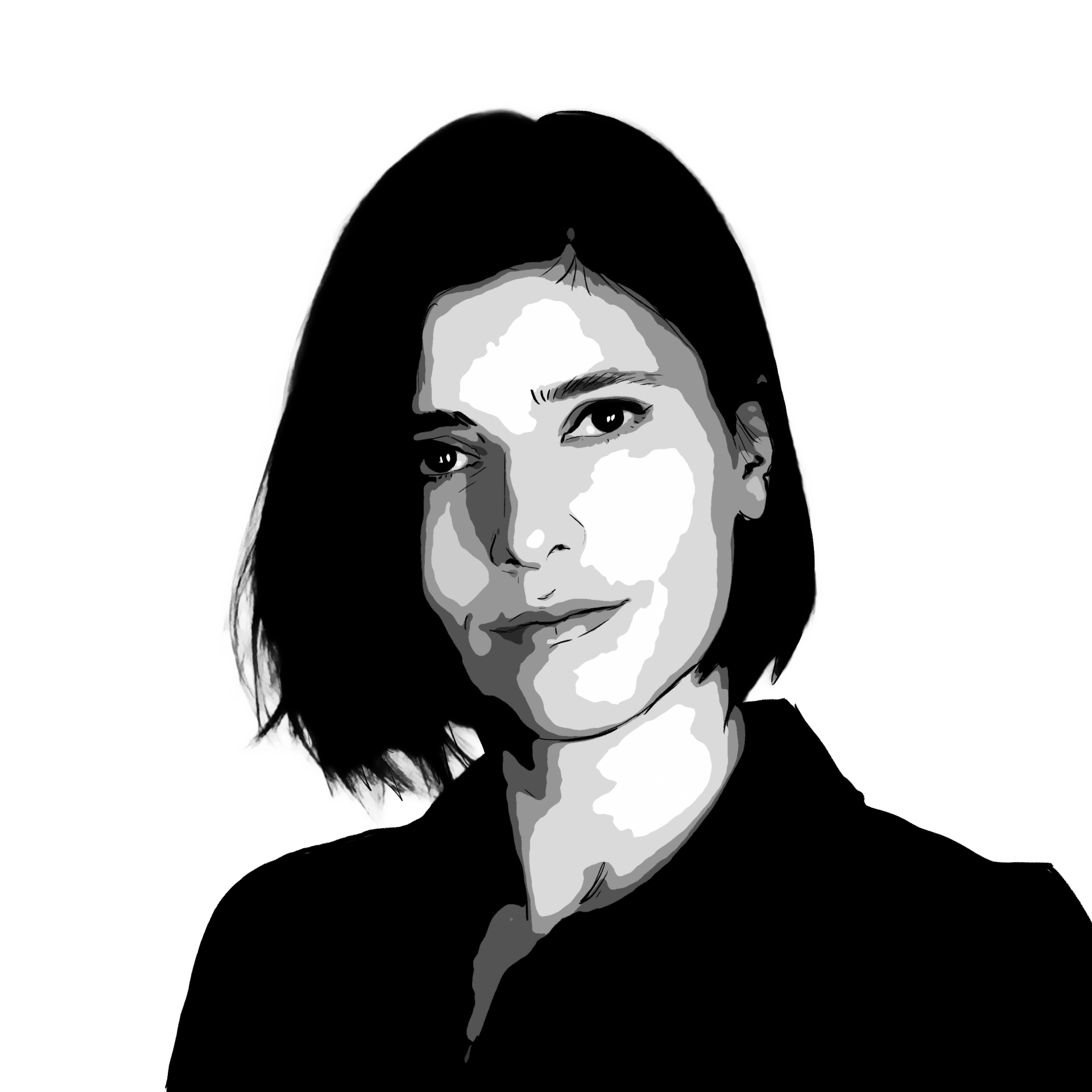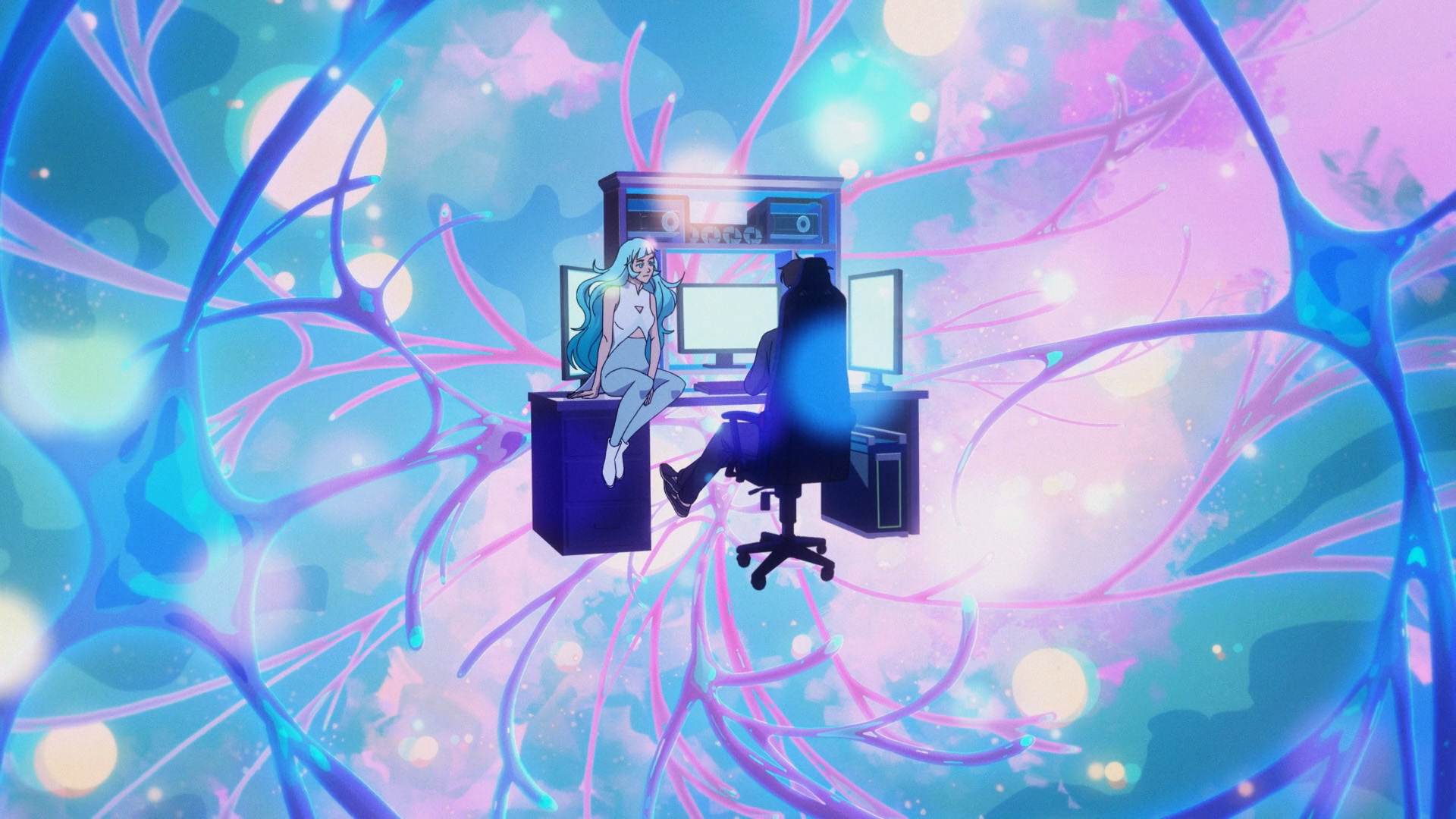Would you upload your mind to the cloud if it meant eternal life? Would you still be you without your body? And would you still be human if you knew you were never going to die? These are some of the questions you will find yourself asking while watching the brilliant animated series Pantheon, currently streaming on Netflix.
The story begins small, with a teenage girl receiving strange messages on her computer, and quickly unfolds into an expansive sci-fi drama centred around a technology that allows human minds to be uploaded into machines. This isn’t the first time science fiction has examined this idea (several episodes of Black Mirror come to mind) but it’s the first time I’ve seen its metaphysical, ethical, psychological, and even geopolitical ramifications explored in such depth.
In Pantheon, the upload procedure involves scanning a human brain, layer by layer, until the physical organ is destroyed, leaving only a digital copy. The philosophical question that immediately jumps out puts a sci-fi twist on the old problem of the self: would a disembodied digital copy of your brain really be you? As one character laments to her terminally ill husband who is contemplating having his consciousness uploaded: “What does that mean? Conversations through a screen? A simulation of you we have to pretend is real? … But not your touch, your laugh, your hug. It’ll never be you!”
Many philosophers and scientists have argued that the mind can be fully reduced to brain activity. In other words, our thoughts, emotions, and the whole of our conscious experience are nothing more than electrical signals firing through our neurons. But they rarely seem to consider the other parts of our body in their assessment of what makes up consciousness. Clearly, they have never tried to think on an empty stomach.
In the 1940s, the French philosopher Maurice Merleau-Ponty challenged the idea that the mind resides solely in the brain. He emphasised the point that consciousness does not sit in the body like a ghost in the machine. Rather, it is fully embodied and inseparable from the way we move, perceive, and engage physically with the world. So, if it were possible to upload your brain to a computer, creating a digital, disembodied emulation of your memories and thought patterns, the conscious experience of that version of you would be completely different from the way you currently experience being yourself.
Pantheon confronts the strangeness of this condition head-on. The “UIs”, or uploaded intelligences struggle to articulate what this new, bodiless mode of existence feels like, and sometimes cannot even function without projecting digital representations of themselves as they appeared when they still had physical bodies.
Suggested Reading


Tom Cruise, the Nietzschean Superman
At the same time, transcending the imperfect physical form is one of the main draws of uploading. As Stephen Holstrom, a Steve Jobs-esque visionary villain, explains, without bodies there would be no more disease, hunger, or death. In fact, UIs have the potential to become god-like beings, no longer bound by time or space, creators of their own worlds.
In many ways, the UIs come to represent, for better or for worse, a higher stage of human evolution, one no longer driven by biology. UIs can process information at far greater speeds than embodied humans, which initially incentivises greedy corporations to exploit and enslave them. Later, their superior brain power means that they have to slow down their speech to be understood by humans who can no longer keep up. Those who choose to remain on the organic plane find themselves left behind: increasingly isolated relics of a different epoch.
We are left to wonder how much of our humanity would survive such a transformation. Would such a leap be a “natural” progression for Homo sapiens or does it represent the kind of tech hubris that can only lead to the downfall of our species?
Pantheon is interesting because, unlike many sci-fi shows, it doesn’t descend into facile technophobia. Instead it presents a nuanced landscape in which there are no simple answers, no obviously correct position. While the show does explore the ethics of uploading a mind to a machine, it also reveals how technology often progresses too rapidly for our ethical considerations to keep up. It doesn’t just ask whether such a technology is right or wrong, it also asks: in a world where sentient bits of code already exist alongside humans, how do we ensure everyone is treated justly?
Over 16 episodes, Pantheon sprawls out in so many philosophically and narratively ambitious directions that it’s impossible to do them all justice here. And I haven’t even mentioned the beautiful animation or the deep emotional and human connections at the core of the story. It seamlessly shifts from grounded relationships to conceptually complex ideas that are never (too) pretentious, while offering insights into grief, love and the human condition.
I can already hear you asking: “If this show is so great, then why have I never heard about it?” As far as I can tell, this has little to do with the show itself. The writing, based on short stories by Ken Liu, is sharp and the cast is star-studded. But the fact that it first aired on AMC+, a streaming platform most people didn’t even know existed, certainly didn’t help. And let’s face it, many still struggle to take adult animation seriously.
But that would be a mistake. At a time when tech companies are forcing AI into every corner of our lives without giving us any space to reflect on its effects on our minds, our wellbeing, or the environment, Pantheon is a show that, unlike generative AI, can think – and make us think.
Emily Herring is a freelance writer and editor




